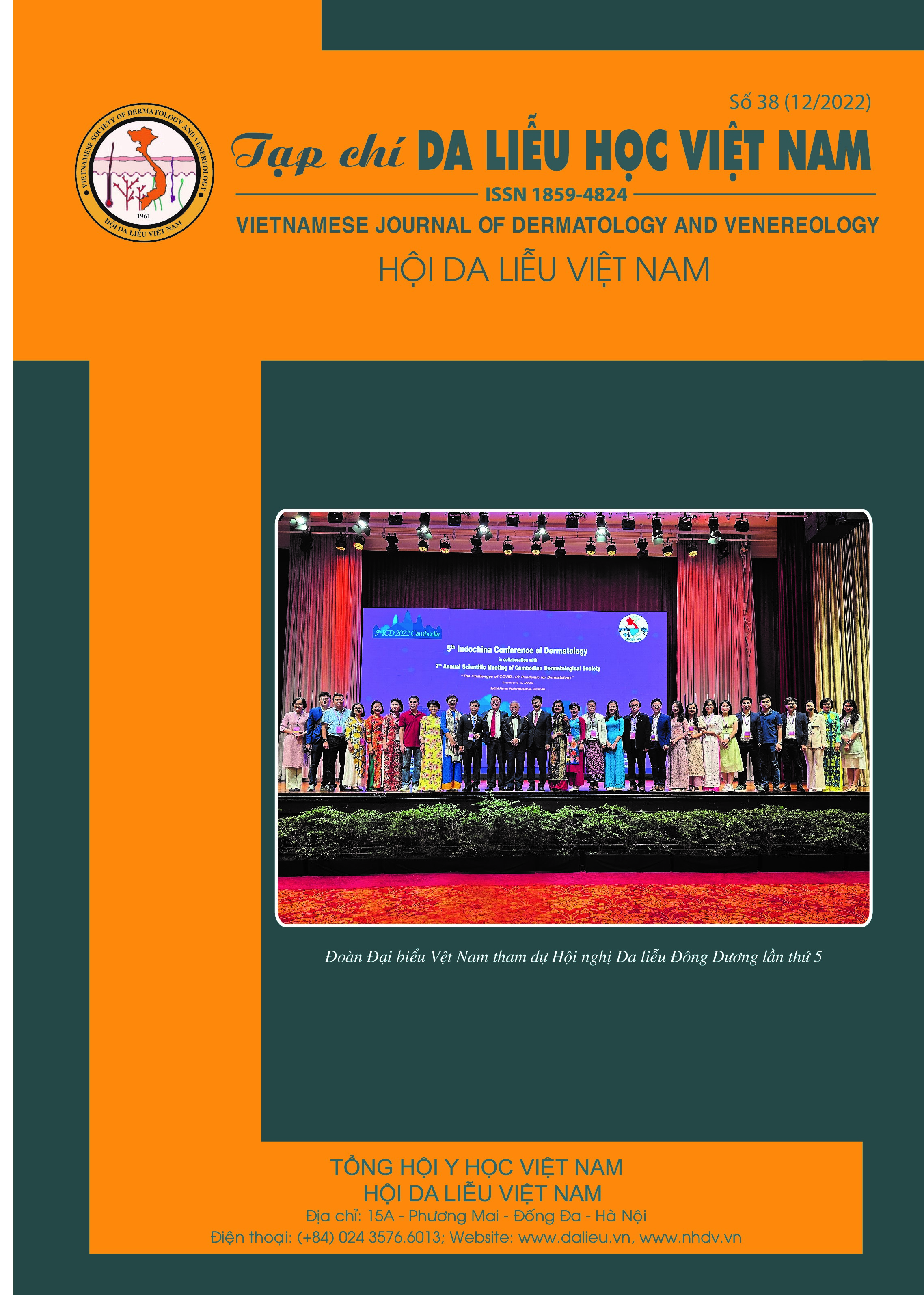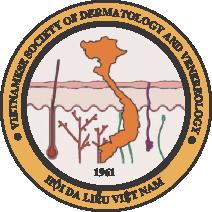NGHIÊN CỨU TÌNH HÌNH NHIỄM NẤM, DEMODEX, ĐẶC ĐIỂM LÂM SÀNG VÀ MỘT SỐ YẾU TỐ LIÊN QUAN CỦA MỤN TRỨNG CÁ TẠI BỆNH VIỆN DA LIỄU CẦN THƠ NĂM 2021
DOI:
https://doi.org/10.56320/tcdlhvn.38.37Từ khóa:
mụn trứng cá, nấm,, Demodex,Tóm tắt
Mở đầu: Mụn trứng cá là một bệnh về da mạn tính rất hay gặp, chủ yếu xuất hiện ở tuổi dậy thì và có thể tồn tại sau 25 tuổi, phổ biến nhất ở phụ nữ. Cơ chế bệnh sinh của bệnh ngày càng phức tạp, trong đó nguyên nhân về xáo trộn hệ vi sinh vật da ( vi khuẩn, vi nấm, kí sinh trùng,..) hiện đang là vấn đề ngày càng nhận được nhiều sự quan tâm, đặc biệt vi nấm và Demodex xuất hiện ngày càng nhiều tại các tổn thương, khiến cho các triệu chứng lâm sàng trở nên phức tạp.
Mục tiêu: Xác định tỷ lệ nhiễm nấm, Demodex, đặc điểm lâm sàng và một số yếu tố liên quan ở bệnh nhân mụn trứng cá đến khám tại bệnh Da Liễu Cần Thơ.
Phương pháp nghiên cứu: nghiên cứu mô tả cắt ngang thực hiện trên 114 bệnh nhân mụn trứng cá từ 18 tuổi trở lên.
Kết quả: Tỉ lệ nhiễm nấm, Demodex là 30,7%, trong đó tỉ lệ nhiễm nấm 18,4%, Demodex là 12,3%, chiếm ưu thế ở nhóm bệnh nhân từ 18-25 tuổi 69,9%, nữ giới cao hơn nam giới với tỷ lệ 65,7%, đa phần có tiền sử tự điều trị 45,7%, chủ yếu sử dụng thuốc bôi có chứa corticoid 62,9%. Đặc điểm lâm sàng chiếm ưu thế ở bệnh nhân mụn trứng cá là biểu hiện ngứa 73,7%, sang thương sẩn mụn mủ với tỉ lệ lần lượt là 38,9 và 48,4%, triệu chứng đi kèm thường gặp là đỏ da giãn mạch 60,3%. Nghiên cứu còn cho thấy rằng tỉ lệ nhiễm nấm, Demodex liên quan có ý nghĩa thống kê với các đặc điểm lâm sàng như biểu hiện cảm giác kiến bò 57,1, sang thương mụn mủ 88,6%, da khô tróc vẩy 73,4%, mức độ nặng rất nặng 51,4%.
Kết luận: tỉ lệ nhiễm nấm, Demodex trên bệnh nhân mụn trứng cá là 30,7%. Có mối liên quan có ý nghĩa thống kê giữa tỉ lệ nhiễm nấm, Demodex và các đặc điểm lâm sàng như biểu hiện cảm giác kiến bò, da khô tróc vẩy, sang thương chủ yếu là mụn mủ, mức độ bệnh từ nặng đến rất nặng.
Thời gian nhận bài: 16/09/2022Ngày phản biện: 21/10/2022
Ngày được chấp nhận: 26/10/2022





